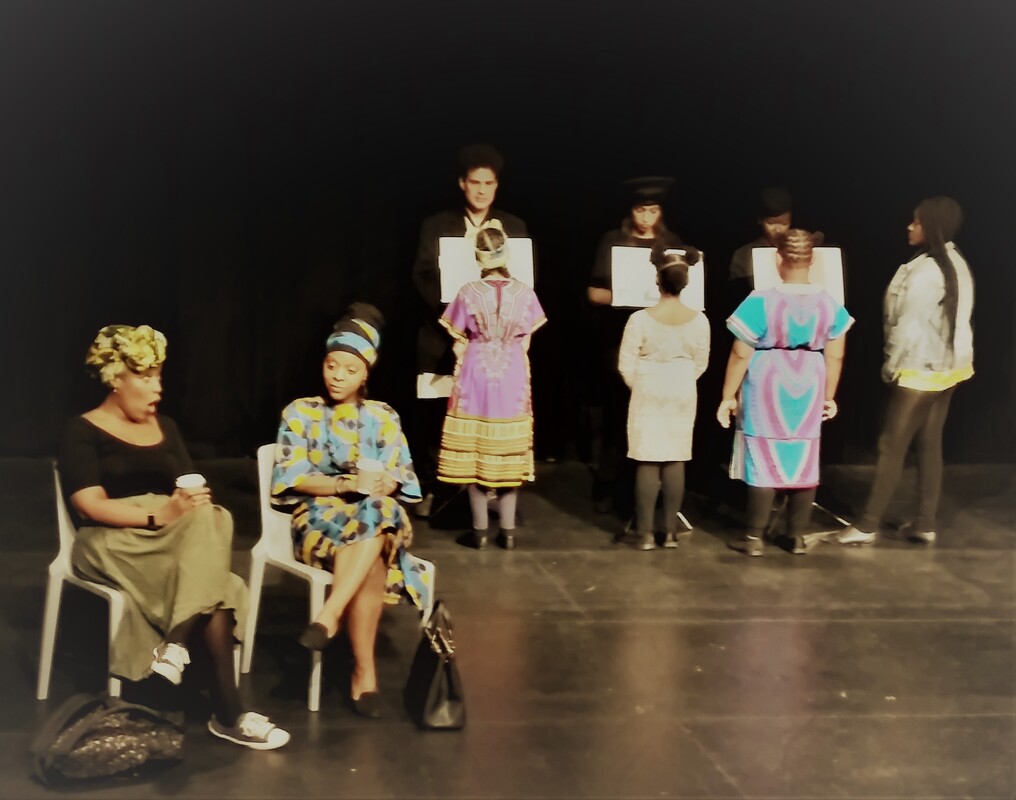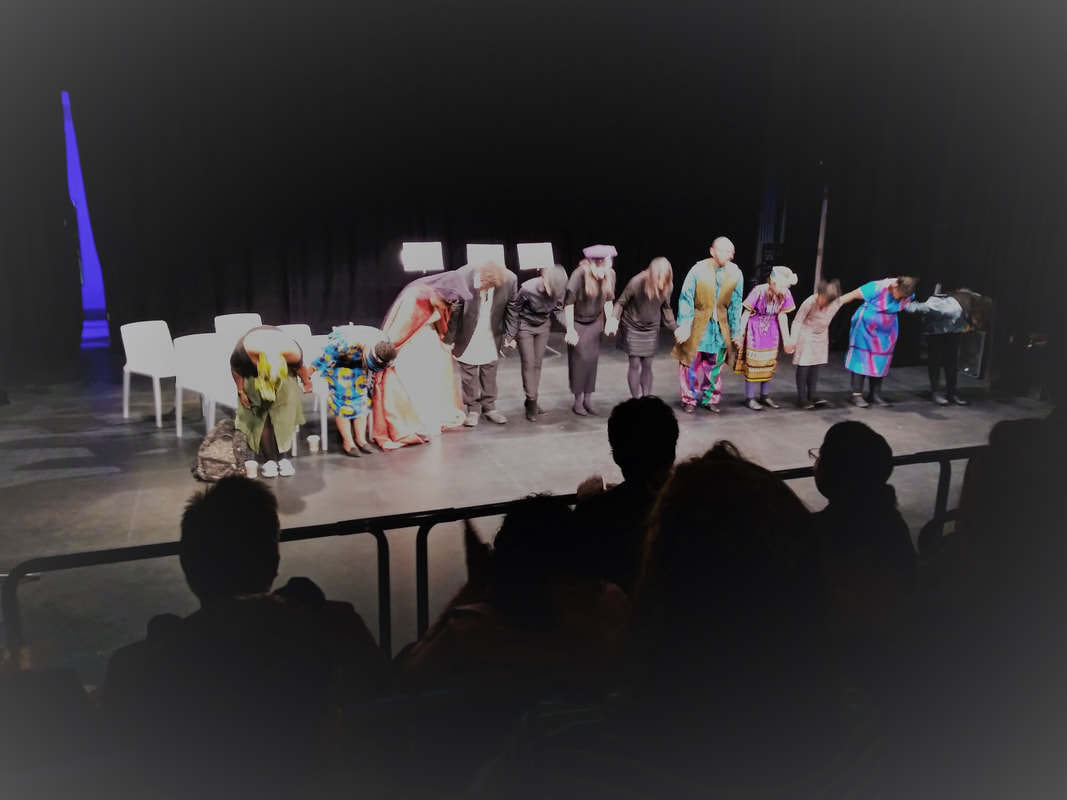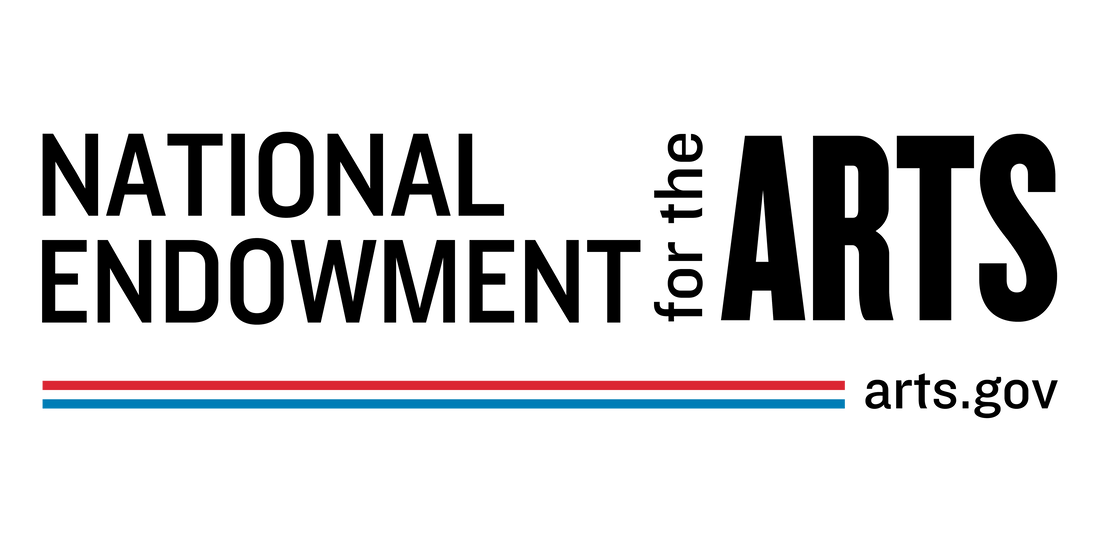|
by Anthony R. Green Happy Sunday, BIBA readers! Last week, Castle of our Skins presented its "Secret Desire to be Black" program at the Isabella Stewart Gardner Museum in Boston, bringing together people from many different communities to celebrate some incredible music, dancing, and interpretation/performance by various artists throughout history and geography. The day before, I was in London, getting a lesson on what Black History Month should actually be about: community. To be more specific, building community by sharing Black stories with ourselves and the world, educating ourselves and others about our community, gathering in person at events where we can talk, fellowship, and grow together, being more aware of each other so we can support each other and grow our collective mental health, and more. This is what community should be, and the event I witnessed last week was a community event in this sense of the word. At Theatre Peckham last Saturday, I saw the world premiere of the opera King Solomon and the Queen of Sheba by vocalist and composer Juwon Ogungbe. In his words, "this new music-theatre piece tells the story of King Solomon and the Queen of Sheba's romantic liason that led to the birth of the Solomonic dynasty of Ethiopian emperors, from Menelik I to Haile Selassie." Theatre Peckham is a wonderful place offering family-friendly theater works for its diverse community. While waiting for the show to begin, I chatted with some of the locals, admired some of the lovely art hanging in the foyer (including a massive Africa quilt), and viewed some of the adverts for upcoming and past programs. I was fortunate to have entered the theater early, as the hall was packed! There were people of various backgrounds and ages in the audience, but all seemed to belong to a community of people interested in this type of programming.
Ogungbe's opera was mesmerising, and also embodied community. The cast was a mix of professional singers and children, who learned their part within the week of the performance in special workshops led by Ogungbe himself. The production felt like a workshop exhibition, with the only accompaniment being a keyboard. The vocal qualities had a wide range, yet everyone performed from the heart. Unfortunately there was no program, and I do not have any reference for names, but the soprano who played the Queen of Sheba really stole my heart with her mastery of Ogungbe's soaring melodies. The music was a mix of western classical and African styles, the most successful music (for me) being the Queen's welcoming music. I found myself bopping and swaying to the accompaniment, while flying along with the beautiful, gliding melody. As a writer, Ogungbe also shone in his rhyming, accessible libretto, which told the story of the Queen of Sheba's meeting with King Solomon through two Rastafari women on their way to Ethiopia. In this way, King Solomon and the Queen of Sheba highlights the link between Ethiopia and Jamaica, and brings this Solomonic story into a modern relevance. I learned quite a bit from this opera, especially from the Q&A session afterwards! But above all this, the feeling of belonging, adding to and celebrating a Black operatic tradition, and fellowshipping with the greater community really made this evening - as well as my visit to the UK - one of the most special visits I have had.
3 Comments
11/3/2019 02:39:16 pm
Many thanks, Anthony. The Queen of Sheba was sung by Caroline Modiba. Sofia was sung by Grace Nyandoro, Nefertiti by Keisha Nurse - these were the two female Rastafari devotees. Barzilai was sung by Anastasios Michalis, Rotem by Helen Karikari and Sheba's Messenger by Chloe Sami. The children were Noellie Nguessan, Zahira Bloch, Isha Phillip and Kaliyah Phillip. The pianist/repetiteur was Waiyin Lee. King Solomon was sung by yours truly.
Reply
11/4/2019 06:54:48 am
Thanks for the info! Everyone did such a fantastic job, and it was great also to hear you sing in real life as well as witness your beautiful opera! Toi toi TOI!
Reply
11/4/2019 07:26:42 am
Molto grazie, merci beaucoup, danke schon, e se pupo (Yoruba) and thank you, Anthony :-) Leave a Reply. |
Details
Writings, musings, photos, links, and videos about Black Artistry of ALL varieties!
Feel free to drop a comment or suggestion for posts! Archives
May 2024
|
Member Login
Black concert series and educational programs in Boston and beyond



 RSS Feed
RSS Feed










